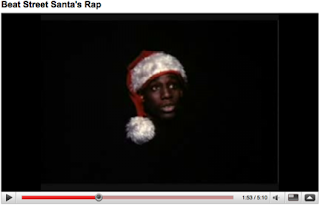On Tuesday, November 7, 2000, I went to bed in Gainesville, Florida with ease believing the announcements that Gore had won the 2000 Presidential Election. The next morning I awoke to a nasty nightmare that I am hoping will end tonight.
Worried that my vote for Obama still might not be counted, yesterday I trekked downtown to the San Francisco Supervisor of Elections’ office to cast my vote with a rare opportunity for extended early voting. As I clutched my signed, sealed envelope under my jacket away from wind and pouring rain, I wondered about the 42 other marks that have not enjoyed as much fanfare as the fight for presidential office.
The San Francisco ballots that allowed for choices on 34 propositions and nine offices have been criticized for being ill-written, unnecessary and overt attacks on civil rights.
The League of Young Voters’ somewhat dogmatic descriptions of endorsements poignantly elucidate how poorly written and under-publicized many of this election’s propositions are. I concur.
As a research-obsessed professor with an extensive network of “experts” to draw from, I spent hours deciphering the texts and implications of many of the propositions. Only a few enjoyed fanfare, and much of that obfuscated the issues. My house phone, my mailbox, and my television have been flooded with propaganda endorsing or opposing the highest funded propositions for the past few months. The numbered State Propositions (such as 8) and even the lettered City and County Propositions (such as H) shared such attention with presidential candidates Obama and McCain.
On the Federal level, I find it offensive that in 2008, a year of historic firsts in politics, there was another ground-breaking story that has been largely ignored in mainstream media since July. For the first time in US history, two black women are running on a Presidential ticket together.
McKinney and Clemente represent the Green party with an extremely progressive agenda. Having recently moved to California from Florida, a state where every last vote was counted more than once in the TWO highly contested presidential elections in 2000 and 2004, I understand the urge to focus on Obama to defeat McCain; however, focusing on that effort does not warrant the silencing of our exercise to reform the two party system. Nor does it warrant our lack of celebration, honor and respect for the grassroots political work that McKinney and Clemente have tirelessly executed.
The latter might be reiterated for
SF’s District 12 Representative candidate for the Peace and Freedom party,
Nathalie Hrizi, and the Green Party’s District 12 candidate,
Barry Hermanson. While the District 12’s incumbent, Democrat
Jackie Speier, was focusing on lowering the national speed limit to 60mph, Hrizi and others mentioned healthcare, economic crisis management, fighting against racism and xenophobia as well as ending the War in Iraq.
I come to each voting opportunity as post-traumatic voter. I cast my first votes in Missouri and my last two presidential election votes were placed in Florida. I admit, I have anxiety around voting, as I have generally experienced problems casting my actual vote and proving eligibility on Election Day. These particular issues did not affect me during the last two elections in SF, but here I see a new set of issues arising. Clarity, focus and equal coverage of key human rights issues will be the challenge to SF’s claim to diversity and democratic ideals.
The handful of African Americans fighting to remain in SF need to ensure that we too are attending to and protecting legislation on a local level that explicitly speaks to humanity across race, class, sexual orientation, gender and citizenship. Next time, rather than spending hours doing research on the “phone book” of propositions in solitude, I might do as Wu-Tang suggested in the first season of Chappelle’s Show and “diversify my bonds.”
A better strategy might be for my friends and I to designate and compensate individuals who we know and trust to attend meetings and advocate where propositions are constructed. We can assign our cohorts with less hectic schedules to help us build coalitions with similarly affected people. Finally, we can research the particulars of propositions once this information is made available, so that we are best informed in a timely manner to ensure human equality prior to Election Day.














